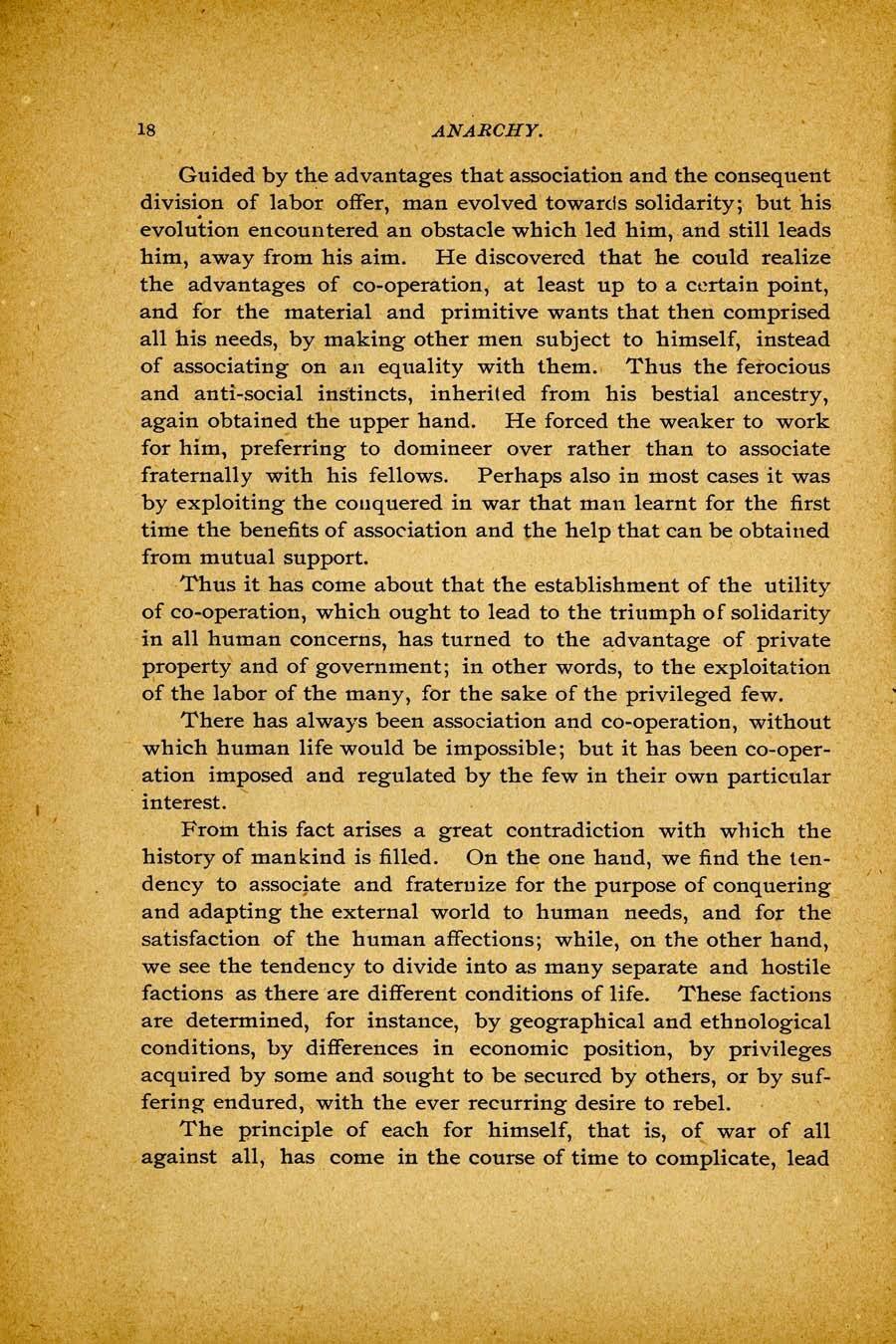Guided by the advantages that association and the consequent division of labor offer, man evolved towards solidarity; but his evolution encountered an obstacle which led him, and still leads him, away from his aim. He discovered that he could realize the advantages of co-operation, at least up to a certain point, and for the material and primitive wants that then comprised all his needs, by making other men subject to himself, instead of associating on an equality with them. Thus the ferocious and anti-social instincts, inherited from his bestial ancestry, again obtained the upper hand. He forced the weaker to work for him, preferring to domineer over rather than to associate fraternally with his fellows. Perhaps also in most cases it was by exploiting the conquered in war that man learnt for the first time the benefits of association and the help that can be obtained from mutual support.
Thus it has come about that the establishment of the utility of co-operation, which ought to lead to the triumph of solidarity in all human concerns, has turned to the advantage of private property and of government; in other words, to the exploitation of the labor of the many, for the sake of the privileged few.
There has always been association and co-operation, without which human life would be impossible; but it has been co-operation imposed and regulated by the few in their own particular interest.
From this fact arises a great contradiction with which the history of mankind is filled. On the one hand, we find the tendency to associate and fraternize for the purpose of conquering and adapting the external world to human needs, and for the satisfaction of the human affections; while, on the other hand, we see the tendency to divide into as many separate and hostile factions as there are different conditions of life. These factions are determined, for instance, by geographical and ethnological conditions, by differences in economic position, by privileges acquired by some and sought to be secured by others, or by suffering endured, with the ever recurring desire to rebel.
The principle of each for himself, that is, of war of all against all, has come in the course of time to complicate, lead
